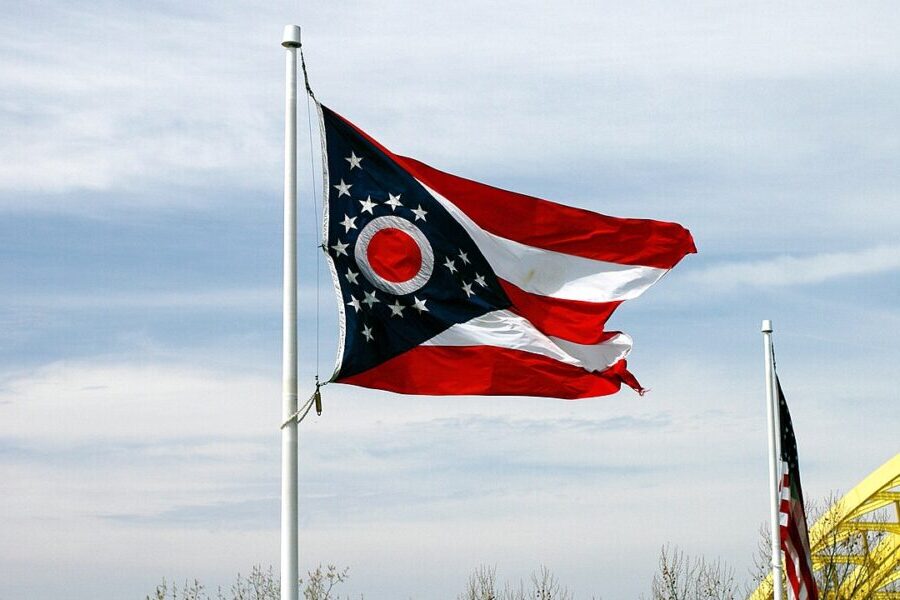Kalshi sues Ohio in a bid to prevent being blocked from operating

Prediction market Kalshi has filed a federal lawsuit against the Ohio Casino Control Commission and Attorney General Dave Yost’s office, claiming the state is overreaching in its attempts to block the operator from offering sports futures betting.
In an October 7 complaint filed in the US District Court in Columbus, Kalshi said Ohio’s regulatory threats have scared off potential business partners, damaging its operations.
Kalshi, which describes its wagers as ‘event contracts,’ allows users to bet on the outcomes of real-world events, including sports.
According to the lawsuit, Kalshi has spent months in discussions with the state, arguing that federal law should allow its operations. However, Ohio maintains that only companies with a state-issued sports gaming license can legally offer sports betting.
The Casino Control Commission issued Kalshi a cease-and-desist letter in early 2025 and warned other sportsbooks that partnering with the platform, even outside of Ohio, could jeopardize their own licenses.
The dispute follows a June legal brief filed by Yost and three dozen other attorneys general backing the state’s authority to regulate online betting.
Kalshi is now seeking a federal injunction to prevent Ohio from blocking its operations, which is planned for October 20.
Last month, the Massachusetts Attorney General, Andrea Joy Campbell, filed a lawsuit against Kalshi for unlawfully promoting and accepting online sports wagers
Abi Bray brings strong researching skills to the forefront of all of her writing, whether it’s the newest slots, industry trends or the ever changing legislation across the U.S, Asia and Australia, she maintains a keen eye for detail and a passion for reporting.
Verticals:
Sectors:
Topics:
Dig Deeper
The Backstory
How the prediction-market fight escalated
The clash over whether sports event contracts are futures or gambling has moved from regulatory skirmishes to a multi-front legal war. In recent weeks, prediction platform Kalshi sued Ohio regulators after receiving a cease-and-desist order that threatened its business partnerships and chilled expansion plans. In its complaint, the company argues the state overreached by treating its federally regulated “event contracts” as sports betting that requires a state license. The case, detailed in Kalshi sues Ohio in a bid to prevent being blocked from operating, follows months of exchanges with the Ohio Casino Control Commission and Attorney General Dave Yost’s office and is headed toward an Oct. 20 injunction hearing.
Ohio’s move is one of several state actions that have forced Kalshi into court. The company has also sued in Maryland after that state’s lottery and gaming regulator ordered it to stop operating. Kalshi’s filing contends Maryland’s attempt to police the platform is preempted by federal law that governs futures derivatives on designated exchanges. The argument and requested injunction are outlined in Prediction markets platform Kalshi files lawsuit in Maryland.
Against this backdrop, the stakes are simple and high: if states win, prediction markets offering sports event contracts must secure sports betting licenses and comply with state gaming rules. If Kalshi prevails, it will cement a path to operate sports-centric contracts under federal commodities oversight, reshaping where the line between trading and gambling is drawn.
Massachusetts becomes a flashpoint
Massachusetts Attorney General Andrea Joy Campbell has taken one of the most aggressive state positions. Her office filed suit in Suffolk Superior Court, alleging Kalshi runs unlicensed sports wagering “under the guise” of event contracts and markets those products to residents as if they were ordinary bets. The complaint seeks to halt operations in the state and notes Kalshi has not applied for a Massachusetts sports wagering license. The filing, and regulators’ warnings about age and consumer safeguards, are summarized in Massachusetts Attorney General sues Kalshi for illegal sports wagering operations.
Campbell’s campaign extends beyond litigation. She has positioned the case within a broader public health frame, including a state-led initiative targeting youth exposure to online wagering. Her office announced a public-private effort last year to curb underage betting risks, detailed here: Attorney General Campbell announces public-private partnership to address the harms of youth gambling on sports. That public health rationale has resonated with state gaming commissioners who warn prediction markets are expanding into sports wagering while sidestepping age checks, player protection programs and taxes.
Kalshi and its distribution partners have pushed back. After the AG’s suit, Robinhood sued the Massachusetts Gaming Commission seeking to block state gambling laws from impeding access to Kalshi’s sports contracts, arguing trades occur on Kalshi’s platform and fall under federal, not state, jurisdiction. The Massachusetts confrontation mirrors a national patchwork, with cease-and-desist orders surfacing in multiple states and selective legal wins for Kalshi in others.
Federal preemption vs. state policing
The legal theory driving Kalshi’s lawsuits is that its markets are futures-like contracts regulated by the Commodity Futures Trading Commission, not sports bets. That position is gaining some traction. A New Jersey federal judge recently barred state regulators from banning Kalshi’s markets while litigation proceeds, marking a significant interim victory that keeps operations alive in a key state and signals judicial openness to the preemption claims.
But the federal regime is not uniformly welcoming. The CFTC has wrestled with how to treat politics and sports-linked event contracts and faces its own legal challenges from adjacent players. Fantasy operator Sleeper Markets sued the agency and its acting chair, alleging interference with its bid for a futures commission merchant license and disparate treatment relative to a competitor. The case, described in Sleeper Markets sues Commodity Futures Trading Commission over alleged license interference, underscores industry claims of regulatory inconsistency that complicates the preemption argument Kalshi advances in state courts.
States, meanwhile, maintain that if a platform lets users stake on the outcome of sporting events, it is sports betting, period, and thereby subject to state gaming laws. Ohio, joined by dozens of attorneys general in a summer brief, has pressed that message. Kalshi’s counter has been to highlight federal jurisdiction and to warn that state actions are chilling partnerships and harming operations, as described in its Ohio complaint. For Massachusetts-specific filings, the AG’s legal position is paired with a consumer protection pitch emphasizing age restrictions, deposit limits and risk disclosures that licensed sportsbooks must follow.
Platforms, partners and collateral risk
The enforcement wave has pulled in distribution partners and raised licensing stakes for traditional operators. Ohio warned that sportsbooks partnering with Kalshi, even outside state borders, could jeopardize their licenses, according to Kalshi’s Ohio lawsuit. That posture increases the cost of affiliation and helps explain why partners like Robinhood are seeking clarity through their own litigation in Massachusetts. The dynamic also pressures market-makers and payment firms that must weigh regulatory exposure in each state against the growth potential of prediction products.
Public perception is shifting, too. The Massachusetts AG’s suit notes industry survey data showing many Americans view sports event contracts as akin to betting and therefore subject to sportsbook rules. That could stiffen political resolve at statehouses just as courts weigh preemption. At the same time, Kalshi points to federal supervision and exchange-level controls as adequate guardrails, a view buoyed by its preliminary win in New Jersey and a prior temporary injunction against Nevada’s regulator referenced in its Maryland suit coverage.
The documentation underpinning the Massachusetts case is also growing. The AG’s office has public materials, including the broader youth safety initiative described above, and Kalshi’s legal responses are accumulating across venues. For readers tracking filings, Massachusetts has released a public complaint against Kalshi here: Kalshi final filed complaint. Legal analysts are parsing the crosscurrents, including through public commentary such as ongoing analysis of Robinhood’s Massachusetts strategy.
What to watch next
The near-term calendar is crowded. In Ohio, Kalshi is pursuing an injunction to prevent enforcement while the case proceeds. In Maryland, the company is seeking both preliminary and permanent relief against the lottery and gaming regulator, with preemption squarely at issue. In Massachusetts, two tracks run in parallel: the AG’s attempt to halt Kalshi’s offerings and Robinhood’s lawsuit to keep prediction access intact for its users, as recapped in Robinhood sues Massachusetts Gaming Commission in response to Kalshi lawsuit.
Any appellate guidance could arrive unevenly, state by state, making a national resolution unlikely in the short run. That favors continued forum shopping, divergent interim orders and operational whiplash for platforms and partners. A definitive federal ruling on the scope of the Commodity Exchange Act over event contracts would be a turning point, but for now, the battleground remains state courthouses and regulatory hearing rooms. The practical stakes are commercial and regulatory: tax revenues, consumer protections, competitive parity with licensed sportsbooks and the shape of a new market that blurs trading and betting.







